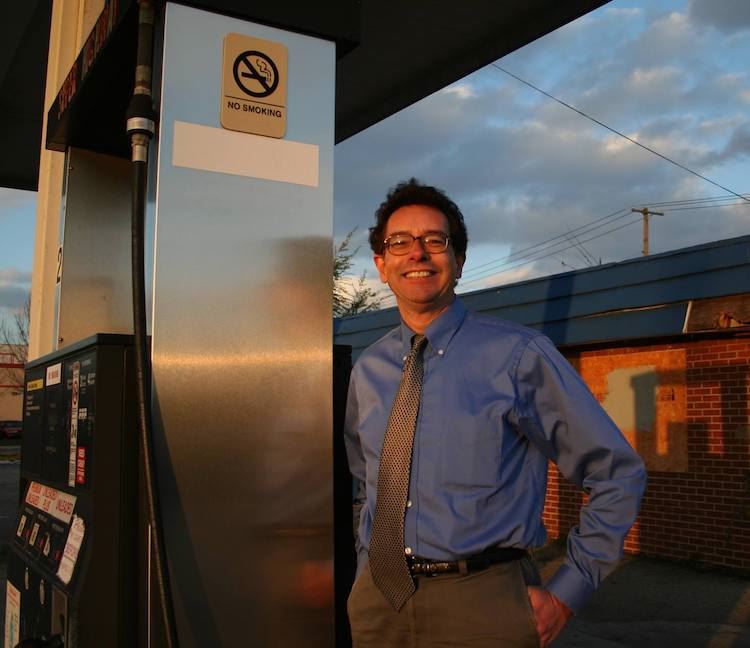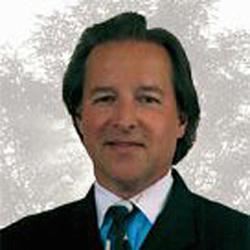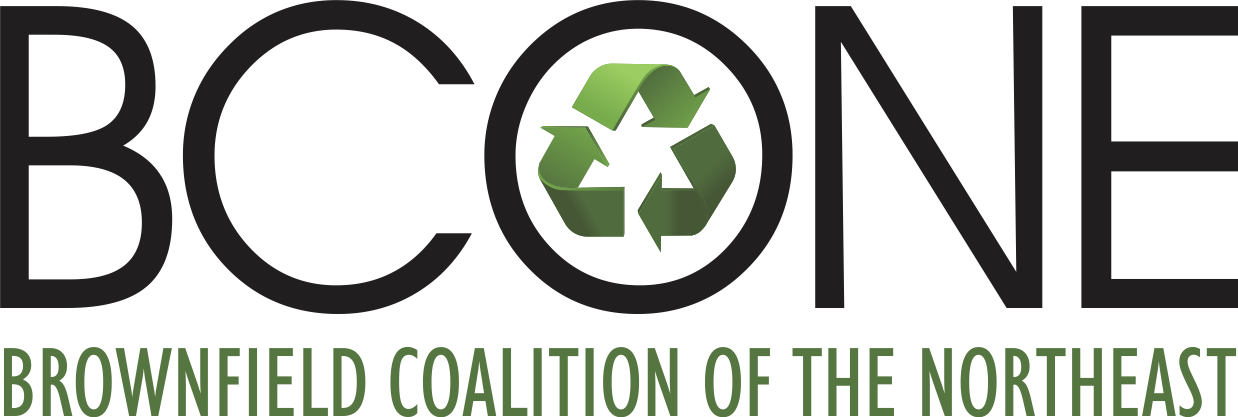By Steve Dwyer
Maybe this is the most fitting epitaph: He was teaching, mentoring, exhorting and encouraging future urban redevelopment students right to the end. Typical Charlie Bartsch.
 Often answering to “Uncle” from friends and family, Charles Bartsch left us in January 2018. And Dean Jeffery Telego remembers an occurrence not long before his passing of a prime teaching moment about his personal and professional friend.
Often answering to “Uncle” from friends and family, Charles Bartsch left us in January 2018. And Dean Jeffery Telego remembers an occurrence not long before his passing of a prime teaching moment about his personal and professional friend.
“Charlie’s ability and desire to spend time with young students was awe-inspiring. He was leaving once on an international trip (not long before his passing) and was spending time with students right there at Union Station, going over what they needed to know about financing a piece of a brownfield development,” says Telego, president of RTM Communications Inc. & Risk Management Technologies Inc. in Bethesda, Md., who met Charlie in the early 1990s.
The BCONE Charlie Bartsch Memorial Scholarship just selected Danielle Gardner and Kathryn Kavanagh for its third scholarship award and distributed $500 each to Dani and Katie from Lafayette University in PA. They produced the winning Phase 1 Report in the Civil Engineering course entitled Environmental Site Assessment (ESA). One thing Charlie would have loved about this program is the fact that it’s a spot-on way to keep his memory alive, as he was so immersed in academia.
So was the scholarship that was distributed to a group of students from The University of Connecticut (UCONN). The four students -- Connor Oakes, Chris Falk, Matthew McKenna, and Caressa Wakeman -- participated in UCONN’s CT Brownfields Initiative (CBI), Dept. of Civil & Environmental Engineering -- a program tethered directly to the study of this specialized field. The four were awarded $500 each, to be allocated toward tuition fees -- and Charlie would probably have awarded them a heftier sum!
The first-ever scholarship to honor Charlie was awarded to Rutgers-Newark student, Ethan Siegenthaler. Ethan, a geology major, completed a more traditional scholarship application with an essay that won the BCONE scholarship committee over: it described the impact on his decision to major in geology on both family trips to upstate New York, hiking mountains and closely observing rock formation and their outcroppings and Rutgers-Newark class trips to witness some of the most environmentally-compromised brownfield sites in the country.
Indeed, Charlie was a professor, author, and mentor to many students from around the world. What was written about him following his untimely passing was this: “Charlie went about his business with passion and proficiency, he built a career with numerous organizations and the Environmental Protection Agency creating and consulting sustainable policies domestic and abroad. Known as an avid international explorer, there were few corners of the world he had yet to discover. From now defunct Soviet Blocs and ancient Khmer ruins to back alley South American markets, Charlie made it a point to climb the highest peaks and touch people's hearts his entire way. His intelligence, want for adventure and generosity knew no bounds.”
Sums it all up quite well, doesn’t it? Well, there’s far more.
I personally “met” Charlie for the first time in 2008, on a speakerphone during a day-long editorial board meeting in Chicago to plan an editorial schedule for the newly launched Brownfield Renewal magazine, of which Charlie served as a board member that included members spanning all fields of brownfield disciplines. Little did I realize that Charlie also specialized in all fields of this industry. He knew all the disparate pieces cold.
Truth be told: At the day-long meeting, he had been calling from The Beltway -- or maybe it was Brussels or Bangkok. It was never quite certain. Even from afar, his was the biggest and most influential voice, presence, in the conference room of very accomplished people.
Moving forward, we had a chance to chat occasionally when his calendar permitted about what was the “most important thing readers needed to know this month” about the ebbs and flows of the always-changing, mercurial brownfields industry. He knew all aspects and angles cold. His insights were invariably fresh and ultra-relevant -- no, make that prescient as Charlie paced one step ahead of the game.
 Jeff Telego, who is also a retired co-founder and executive co-director of the Environmental Bankers Association, tells me that the most appropriate collection of adjectives to define Charlie’s essence starts with “bull-dogged tenacity.” Continue with “renaissance professional who blended many diverse areas of specialization, beginning with his economic vision,” Jeff says.
Jeff Telego, who is also a retired co-founder and executive co-director of the Environmental Bankers Association, tells me that the most appropriate collection of adjectives to define Charlie’s essence starts with “bull-dogged tenacity.” Continue with “renaissance professional who blended many diverse areas of specialization, beginning with his economic vision,” Jeff says.
Telego regards Charlie’s commitment to students a legacy of new “renaissance students” who could move ahead more confidently in brownfield practice because they can better navigate the complex brownfield “machinery” -- not just a single or double aspect so as to operate in a solo.
“Being a renaissance student means having an affinity to blend economics, land use planning, risk management, finance, environmental management and engineering. What I loved doing with Charlie was the integration process of all these different disciplines,” Jeff told me last month.
Jeff Telego met Charlie in 1991, and they began to attend national industry conferences to evangelize on how attendees could “learn about managing and transferring environmental risk, including the nuts and bolts about risk-based cleanups and liability buyouts -- and how this all worked from city to city, as each metro area had different circumstances,” Jeff says.
He recalls the way Charlie was one of the pioneering people to greatly comprehend the relevance of the public-private partnership, its critical importance to getting brownfield projects off the ground and taken to the finish line. The tax increment financing (TIF) concept was another where Charlie was ahead of the curve, able to break down all its moving parts for those who needed to become immersed in it to succeed.
The term “sustainability” is one making the rounds these days. Charlie understood “sustainability” before it was cool, such as the dynamics behind a green and sustainable site cleanup -- to enhance and enrich an element rather than take away from it, deplete it.
Jeff Telego says this type of concept is one that appeals to millennials and Gen Xers, who are “wedded with the idea of doing more with less, becoming entirely energy efficient. Kids are returning to urban settings to live, work and play, and seeking comfort defined across several criteria, starting with LEED-certified, energy-efficient buildings. Charlie knew that all these instruments work in tandem.”
Charlie was a master of comprehending the many vagaries of financing tools: New market tax credits, TIF financing, activation of the RLF (revolving loan fund) and how, say, a manufacturing sector can be a key recipient target of these funds. This has become so vital within the community development endgame: The financing overlays required to bring brownfield projects to fruition, Jeff points out.
With the emerging Opportunity Zone concept becoming the newest “flavor of the month,” Jeff wonders aloud how his friend might have had a field day to better champion it, put in his two cents and effect serious impacts.
“Charlie and I became kindred spirits, demonstrated with areas like debt financing and equity financing roles to fund projects. There was a time (prior to the market bubble of 2008-09) when many local community banks were eager to build their marketing reputation as the banks that finance brownfields.”
Students need to be able to tap squarely into these “renaissance,” multi-faceted pillars to see future brownfields through. They also need access to college curriculums that provides more study on sustainable development and need to understand how broad and unwieldy the brownfield market is, develop a firm handle on land use planning tools, both Jeff and I agreed.
“Charlie could articulate all of the puzzle pieces to turn around a former Ford assembly plant just as fluently as he could discuss the necessities for a site with underground storage tanks. He had an affinity to build support for the brownfields industry and help ensure that the word got out about what needed to be done to bring projects to fruition,” Jeff concludes.
Uncle Charlie would probably say that there’s still much work to be done to that end—and that the current students-as-brownfield-practitioners of tomorrow have a golden opportunity to make a difference.

